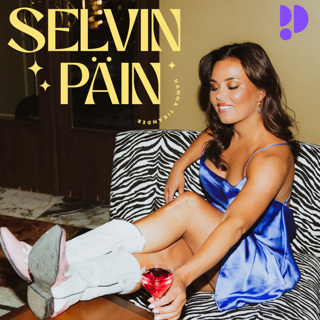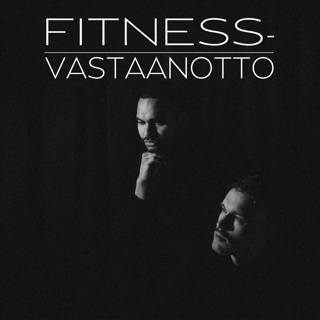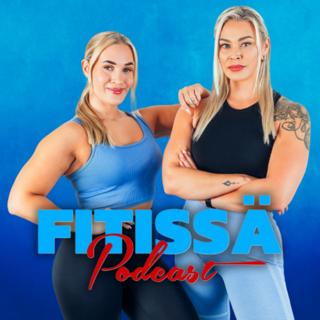
What NOT to Eat Before a Triathlon
Could you be sabotaging your race-day performance by eating the wrong pre-race foods? Having worked with triathletes for the past 16 years, I've seen far too many show up to a race with no clear plan for their nutrition and undoing the months of hard training they put in. I don’t want that to happen to you so today I’m talking about what NOT to eat before you get to that start line. Minimise Fibre Normally, fibre is fantastic—it's essential for keeping our gut microbes happy, supporting our immune system, and so much more. However, in the days leading up to a triathlon, it’s wise to reduce your fibre. Avoid nuts, seeds, and legumes, and be careful with your fruit and vegetables. Instead of whole grains, opt for white bread or pasta to reduce the fibre content. This will reduce the bulk in your gut and the chance of gastrointestinal upset during your race. Monitor Your Fat Intake Healthy fats are a key part of your daily diet, but in the days before a race, it’s best to cut back. High-fat foods can slow down digestion and increase the risk of gastric issues, neither of which you want on race day. So, avoid fatty meats, avocados, creamy sauces, pastries, and anything else with a high-fat content. Avoid Spicy Foods Spicy foods increase the risk of heartburn and can cause stomach upset, which are both bad news on race day. Even if you usually tolerate spicy foods well, it's best to keep things mild in the days leading up to your event. Say no to hot curries and focus on gentle, easy-to-digest foods to keep your stomach settled. Consider Dairy Carefully This one is more personal. Some people find dairy problematic and if you’re one of them, you should avoid it in the lead-up to the race If you don’t usually have issues with dairy, there’s no need to cut it out. The key is to stick to simple, plain foods that you know your stomach handles well. Skip the Carbonated Drinks Carbonated drinks like soda or even sparkling water introduce extra gas into your digestive system which can lead to bloating and discomfort. It’s not worth the risk, so opt for still water and hydration drinks in the days before your race. Eliminate Alcohol This might seem obvious, but avoiding alcohol before a race is crucial. Alcohol can negatively affect your sleep, dehydrate you, and put additional stress on your liver. All of these factors make it difficult to reach peak performance, so avoid alcohol as much as possible leading up to race day. Stay Clear of Unknown Foods The days leading up to a race are not the time to be experimenting with new meals or ingredients. Stick to foods you are familiar with and have practised eating during training, as unknown foods could lead to unexpected gut issues. If you're travelling and can't access your usual foods, plan ahead as much as possible. Research local restaurants and their menus to find safe, familiar options that you can rehearse in training. As you prepare for your next big race, remember that proper nutrition isn’t just about what you eat on the day. It starts a week before and continues right through to your recovery post-race. So, make smart choices, practice your nutrition strategy as rigorously as you train, and set yourself up for success. If any part of this feels overwhelming, or if you want to dive deeper, consider joining the Triathlon Nutrition Academy program. We cover everything from pre-training to race-day nutrition and beyond. Our goal is to make you not just survive but thrive in your racing journey. Until next week, happy training! LINKS: Check how well you’re doing when it comes to your nutrition with our 50 step checklist to Triathlon Nutrition Mastery: dietitianapproved.com/checklist Start working on your nutrition now with my Triathlon Nutrition Kickstart course: dietitianapproved.com/kickstart It’s for you if you’re a triathlete and you feel like you’ve got your training under control and you’re ready to layer in your nutrition. It's your warmup on the path to becoming a SUPERCHARGED triathlete – woohoo! Join the waitlist for our next opening of the Triathlon Nutrition Academy www.dietitianapproved.com/academy Website: www.dietitianapproved.com Instagram: @Dietitian.Approved @triathlonnutritionacademy Facebook: www.facebook.com/DietitianApproved The Triathlon Nutrition Academy is a podcast by Dietitian Approved. All rights reserved. www.dietitianapproved.com/academySee omnystudio.com/listener for privacy information.
8 Elo 202416min

Top 10 Superfoods for Endurance Athletes
Wondering how to fine-tune your nutrition for peak endurance performance? I’ve got you covered. Today, I'll be sharing my top 10 "superfoods" that every endurance athlete should consider incorporating into their diet. I’m not talking about the typical marketing gimmick superfoods; I’m talking about nutrient-dense foods that genuinely enhance performance and overall health. Berries are rich in antioxidants, in particular flavonoids, that help combat inflammation and oxidative stress from workouts. They’re also a great option for a low-carb, low-calorie snack that satisfies your sweet tooth. Berries are best when they’re fresh, locally grown, and in season, but frozen berries can provide a good variety all year round! Eggs are an excellent source of high-quality protein and contain the amino acid leucine, which promotes muscle protein synthesis. They are also nutrient-dense, providing B vitamins, choline, selenium, vitamin A, iron, and phosphorus. Remember to eat the whole egg, not just the whites, as the yolks contain most of the nutrients. Quinoa is a protein-rich grain, packed with fibre and essential amino acids. It’s a great choice plant-based source of protein for vegetarian or vegan athletes. It’s also particularly beneficial for anyone balancing their carbohydrate and protein intake. Legumes are nutrient powerhouses rich in protein and fibre. They are great for gut health and help in muscle repair and recovery. They can be added to salads, casseroles, and even spaghetti but, add them to your diet slowly to avoid gastrointestinal discomfort. Nuts and Seeds offer a great mix of protein and healthy fats. Each type offers different benefits so try and include a variety in your diet. While they are calorie-dense, studies have shown we absorb fewer calories from nuts than previously believed, so don't hold back! Mushrooms are an excellent source of B vitamins, antioxidants, and essential minerals. They’re also one of the few foods that can provide vitamin D, which they generate when exposed to UV light. Mushrooms offer so many benefits that I’m thinking of giving them their own episode in the future. In the meantime, make sure you add them to your diet wherever possible. Beetroots are known for their high nitrate content, which enhances blood flow and oxygen delivery to muscles. While you'd need to eat a lot to see significant performance benefits, adding beetroots into your diet will support your overall cardiovascular health. Extra Virgin Olive Oil is a great source of monosaturated fat, which we rarely get enough of. It also contains bioactive molecules that help reduce oxidative stress and inflammation. Recent studies even suggest that its anti-inflammatory properties can rival those of ibuprofen. Deep-Sea Fatty Fish, like salmon, tuna, and mackerel, are rich in omega-3 fatty acids, essential for cardiovascular health, joint health, and overall brain function. Most people eat fish occasionally, but not enough to receive the full benefits. Aim to include these in your diet two to three times a week. Green Leafy Vegetables are nutrient-dense, rich in vitamins A, C, K, E, and essential minerals. These versatile vegetables are great for protecting against disease and promoting overall health. So, don’t just stick to spinach and kale; there are so many options here and eating a variety will bring maximum benefits! Remember, nutrition is about variety and balance. No single food item will make you a better athlete overnight, but incorporating a diverse range of these nutrient-dense foods into your diet will set you up for long-term health and optimal performance in your triathlon training. If you have any questions about incorporating these foods into your diet or want to discuss specific nutrition strategies, please feel free to reach out. REFERENCES: Richard C, Cristall L, Fleming E, Lewis ED, Ricupero M, Jacobs RL, Field CJ. Impact of Egg Consumption on Cardiovascular Risk Factors in Individuals with Type 2 Diabetes and at Risk for Developing Diabetes: A Systematic Review of Randomized Nutritional Intervention Studies. Can J Diabetes. 2017 Aug;41(4):453-463. doi: 10.1016/j.jcjd.2016.12.002. Epub 2017 Mar 27. PMID: 28359773. Hess J et al. Impact of Agaricus bisporus Mushroom Consumption on Gut Health Markers in Healthy Adults. Nutrients. 2018 Oct 2;10(10). pii: E1402. doi: 10.3390/nu10101402. https://www.ncbi.nlm.nih.gov/pmc/articles/PMC6213353/ LINKS: Check how well you’re doing when it comes to your nutrition with our 50 step checklist to Triathlon Nutrition Mastery: dietitianapproved.com/checklist Start working on your nutrition now with my Triathlon Nutrition Kickstart course: dietitianapproved.com/kickstart It’s for you if you’re a triathlete and you feel like you’ve got your training under control and you’re ready to layer in your nutrition. It's your warmup on the path to becoming a SUPERCHARGED triathlete – woohoo! Join the waitlist for our next opening of the Triathlon Nutrition Academy www.dietitianapproved.com/academy Website: www.dietitianapproved.com Instagram: @Dietitian.Approved @triathlonnutritionacademy Facebook: www.facebook.com/DietitianApproved The Triathlon Nutrition Academy is a podcast by Dietitian Approved. All rights reserved. www.dietitianapproved.com/academySee omnystudio.com/listener for privacy information.
1 Elo 202434min

Five Key Nutrition Strategies to Manage Your Return to Triathlon Training
If you’ve ever had a break from training, there are a few key things you need to do with your nutrition on your return. Maybe you’ve been sick or injured, gone on a triathlon free holiday (who even are you?!), you’ve taken a few weeks off after a key event or had something personal come up that’s been a handbrake on your training. Whatever the reason, this is an important time to prioritise your nutrition strategies. To ensure you’re putting in the right building blocks, at a time when your body is really receptive. Listen in as I give you five nutrition tips to make the transition back into regular triathlon training a smooth and easy one. LINKS: Check how well you’re doing when it comes to your nutrition with our 50 step checklist to Triathlon Nutrition Mastery: dietitianapproved.com/checklist Start working on your nutrition now with my Triathlon Nutrition Kickstart course: dietitianapproved.com/kickstart It’s for you if you’re a triathlete and you feel like you’ve got your training under control and you’re ready to layer in your nutrition. It's your warmup on the path to becoming a SUPERCHARGED triathlete – woohoo! Join the waitlist for our next opening of the Triathlon Nutrition Academy www.dietitianapproved.com/academy Website: www.dietitianapproved.com Instagram: @Dietitian.Approved @triathlonnutritionacademy Facebook: www.facebook.com/DietitianApproved The Triathlon Nutrition Academy is a podcast by Dietitian Approved. All rights reserved. www.dietitianapproved.com/academySee omnystudio.com/listener for privacy information.
25 Heinä 202418min

Ultraman Australia Race Nutrition with Paul & Lisa McDonald
Today, I'm joined by two passionate triathletes, Lisa and Paul McDonald, to discuss his recent experience with the gruelling Ultraman Australia. Lisa was with him all the way and, as a member of the TNA, had the knowledge to equip him for success. Our conversation goes over the whole journey, from training and nutrition planning to the actual race and recovery. So, get ready for some actionable advice on optimising your performance in long-distance triathlons. For those unfamiliar, Ultraman is no ordinary triathlon. It's split over three days: - Day 1: 10km Swim and 140km Bike Ride - Day 2: 281km Bike Ride - Day 3: 84.4km Double Marathon It's an event that challenges the mental and physical limits of even the most seasoned athletes. Paul explained he had a longtime interest in Ultraman but didn’t believe he could achieve those distances at first. However, the more he was exposed to the event as he watched friends compete, the more he realised that these distances were indeed achievable. Going into the race, Paul’s primary goal was simple: to have fun. Rather than stressing about achieving the best times, he wanted his focus to be on enjoying the experience. This laid-back approach worked out well because Paul ended up finishing fifth overall, first in his age group, and was the first service member to cross the line with a total time of 26 hours, 38 minutes, and 49 seconds. Nutrition was crucial for Paul's success, and that’s where Lisa and I came into play. While we don’t cover the Ultraman distance in the Triathlon Nutrition Academy, Lisa was able to use what she learned to craft a nutrition plan that could sustain Paul over the three-day event. Here are some of the key points from their approach: - Carbohydrate Targeting: Lisa focused heavily on carbohydrate intake, ensuring Paul stayed fuelled throughout each day. “Always aim higher than you think you need.” - Immediate and Aggressive Recovery Nutrition.: Lisa was there at the finish line each day with recovery meals, ensuring he was refuelling properly. This proactive approach allowed Paul to maintain his energy levels and muscle recovery for the subsequent stages - Avoiding Burnout: Paul's nutrition alternated between real foods (sandwiches, potato gems, bananas, dates) and sports nutrition products. This strategy wasn’t just about fuelling but also about keeping meals palatable over three long days. - Flexible Nutrition: The ability to adjust your plan is key. When Paul struggled with his planned nutrition on Day Two, they switched to foods he could tolerate better while still meeting his nutritional targets. The Importance of a Good CrewAnother significant element of Paul’s success was his exceptional support crew, made up of close friends and family. Having experienced people who understood his needs sometimes before he did, took a lot of mental work off his shoulders. They managed everything from the nutritional handovers to emotional support seamlessly, ensuring Paul stayed on track. So, what’s next for Paul? He’s eyeing a daunting 240-kilometre ultra-run in the Northern Territory. Lisa is, as always, ready to support him, eager for the next big adventure. And who knows? Maybe another Ultraman is in their future. For now, I hope their story is a powerful example of how proper planning and a well-rounded nutritional strategy can make the seemingly impossible, possible. LINKS: Check how well you’re doing when it comes to your nutrition with our 50 step checklist to Triathlon Nutrition Mastery: dietitianapproved.com/checklist Start working on your nutrition now with my Triathlon Nutrition Kickstart course: dietitianapproved.com/kickstart It’s for you if you’re a triathlete and you feel like you’ve got your training under control and you’re ready to layer in your nutrition. It's your warmup on the path to becoming a SUPERCHARGED triathlete – woohoo! Join the waitlist for our next opening of the Triathlon Nutrition Academy www.dietitianapproved.com/academy Website: www.dietitianapproved.com Instagram: @Dietitian.Approved @triathlonnutritionacademy Facebook: www.facebook.com/DietitianApproved The Triathlon Nutrition Academy is a podcast by Dietitian Approved. All rights reserved. www.dietitianapproved.com/academySee omnystudio.com/listener for privacy information.
18 Heinä 202427min

Nine signs your nutrition sucks
How can you know if your nutrition sucks? Well, bad nutrition can cause big issues in all areas of your body, so there are plenty of warning signs, but they’re easy to miss if you don’t know what to look for. Today I want to share nine critical signs that your nutrition needs immediate attention 1.You Need a Nap During the Day For me, the biggest red flag here is when someone constantly needs to nap or if they’re falling asleep on the couch. If your body isn’t receiving the fuel or nutrition it needs, it will try to keep things balanced by forcing you to rest more. When naps aren’t possible, you’ll likely start craving caffeine or sugar to get a quick energy boost. Evaluate your overall diet to ensure you’re getting enough nutrients and calories to support your energy needs without the need for extra naps. 2. You Have Gut Issues Nausea, vomiting, stomach cramps, gas, and other gastrointestinal problems are indicators that something is off with your nutrition. As a triathlete, exercise puts stress on your gut, making proper nutrition even more essential. I see way too many people with major gut issues, who have convinced themselves it’s normal or nothing can be done, but this isn’t true! Consult a professional to tweak your diet and relieve these uncomfortable symptoms. 3. You Get Annoying Niggly Injuries Adequate nutrition is essential for recovery and injury prevention. So, if you’re constantly dealing with soft tissue or tendon issues, it’s a sign your nutrition could be lacking. Focus on integrating balanced meals rich in essential nutrients to promote tissue repair and reduce injuries. 4. You Have a Pantry Full of Supplements Having a cabinet full of vitamins and supplements is not a good sign. Not only is it an unnecessary financial cost, but it also shows that you aren’t informed and in control of your nutrition. Proper nutrition should come from a balanced diet rather than a multitude of supplements. If you need supplements, then make sure you have professional guidance. 5. You Don’t Know What’s in Your Sports Nutrition Products Not knowing the specifics of your sports drinks or gels is dangerous. A lot of triathletes start using something because it’s popular or because their coach recommended it, but it might not work well for them. You need to understand what’s in a product, beyond just the calories or carbohydrates, so you can understand when to use it and why. 6. Your Hormones Are Out of Whack If your body isn’t receiving proper fuelling and nutrition, it will start to struggle with maintaining basic functions like our hormones. For women, if your menstrual cycle is irregular, light, or absent, it’s a sign you need to make changes to your nutrition. For men, low sex drive or testosterone levels indicate the same problem. This is a serious issue so reach out to a sports dietitian and get it sorted today. 7. You have an unhealthy relationship with food If you have restrictive eating habits, binge eating episodes, or an unhealthy relationship with food, your nutrition needs a serious overhaul. Until you do, you won't be able to properly fuel your body for the high demands of triathlon training, so your performance and health will suffer. If you’re struggling in this way, please get in touch with an eating disorder specialist. Fostering a healthy, balanced approach to food is essential for sustained athletic performance and well-being. 8. You Get Sick Often If you often get sick or can’t shake off illnesses quickly, your immune system might be compromised due to poor nutrition. Similarly, if you fall into a sick hole post-event, that’s a major red flag. It’s not just your race nutrition plan or immediate recovery, everything you eat (or don’t eat) can have a big impact on your health. So, prioritise a balanced diet rich in vitamins and minerals to boost your immunity and recovery. 9. You’re Not Organised with Your Nutrition Flying by the seat of your pants when it comes to nutrition won’t cut it. If you’re not planning your meals and end up just grabbing whats convenient, your nutrition and performance will suffer. You don’t need to be as organised as I am, but you do need a plan to stay on top of your nutrition game. If you aren’t sure where to start, reach out to me. I can teach you how to plan your meals and shopping trips to ensure you have balanced meals prepped. If any of these signs resonate with you, it’s time to take action. Don’t waste years trying to figure it out on your own or seeking free solutions that throw spaghetti at the wall. A sports dietitian can offer personalised, strategic advice suited to your unique needs. So, if you're ready to take your performance to the next level, join our Triathlon Nutrition Academy where I help athletes just like you fine-tune their nutrition strategies for peak performance. LINKS: Check how well you’re doing when it comes to your nutrition with our 50 step checklist to Triathlon Nutrition Mastery: dietitianapproved.com/checklist Start working on your nutrition now with my Triathlon Nutrition Kickstart course: dietitianapproved.com/kickstart It’s for you if you’re a triathlete and you feel like you’ve got your training under control and you’re ready to layer in your nutrition. It's your warmup on the path to becoming a SUPERCHARGED triathlete – woohoo! Join the waitlist for our next opening of the Triathlon Nutrition Academy www.dietitianapproved.com/academy Website: www.dietitianapproved.com Instagram: @Dietitian.Approved @triathlonnutritionacademy Facebook: www.facebook.com/DietitianApproved The Triathlon Nutrition Academy is a podcast by Dietitian Approved. All rights reserved. www.dietitianapproved.com/academySee omnystudio.com/listener for privacy information.
11 Heinä 202447min

Laura Hoffman reveals her secrets to a 20min PR at Western Massachusetts 70.3
Have you ever felt like your body just isn’t cooperating, no matter how hard you train or how well you think you’re eating? You’re not alone. Many athletes have gone through this, and today’s guest, Laura Hoffman, is no exception. She previously struggled with iron absorption issues which severely impacted her training but overcame this with tailored nutrition. Recently, Laura achieved a 20-minute personal record (PR) at the Western Massachusetts 70.3 Ironman, and I got the inside scoop on how she did it! To kick things off, Laura shares that her realistic goal for this race was five hours and 45 minutes, but her “super top secret” goal was a challenging five hours and 30 minutes. Despite facing less-than-ideal conditions, Laura did the unthinkable and crossed the finish line at exactly 5:30. She described the euphoric moment when she saw the time on the board and realised she had achieved her ultimate goal. The Game-Changer: NutritionThe real secret sauce here was an incredible transformation in her approach to nutrition. Before she started working with me Laura was dealing with fatigue and iron absorption issues, leading her to need iron infusions every three months. Things got so bad she believed she might need to give up on triathlon! Thankfully she came across the Triathlon Nutrition Academy and started on a nutrition plan that addressed her unique needs and the demands of a triathlete's lifestyle. For example, one change Laura made was fuelling within a specific time window post-workout, something she had overlooked before. After just a few weeks of these simple adjustments, Laura noticed a monumental shift. Gone were the endless naps and two pots of coffee a day. Instead, she was energetic, needing just a single cup of half-caffeinated coffee to power through her increasingly active days. There is no one size fits all in nutrition!If you want optimal performance, you need to test and practice to find what works. Laura emphasises how important this was for her race-day nutrition. She shares how bananas and Clif bars—which are often staple race foods—didn't sit well with her. Instead, precision fuel and hydration did the trick, “No gut upset and more energy than I’ve ever had during a race,” she remarked. As Laura looks ahead to her next goal—racing in New Zealand at Worlds— she plans to adjust her strategy based on available local foods and race-day conditions. Whether it’s practising carb-loading or fine-tuning her race-day fuel, Laura is committed to continuous improvement. Laura's story is testament to the transformative power of personalised nutrition. Not only did it help her achieve a phenomenal 20-minute PR, but it also addressed her long-standing energy issues, allowing her to continue with the sport she loves. So, if you’re also looking to break through your performance barriers, maybe it’s time to try a more personalised approach! LINKS: Check how well you’re doing when it comes to your nutrition with our 50 step checklist to Triathlon Nutrition Mastery: dietitianapproved.com/checklist Start working on your nutrition now with my Triathlon Nutrition Kickstart course: dietitianapproved.com/kickstart It’s for you if you’re a triathlete and you feel like you’ve got your training under control and you’re ready to layer in your nutrition. It's your warmup on the path to becoming a SUPERCHARGED triathlete – woohoo! Join the waitlist for our next opening of the Triathlon Nutrition Academy www.dietitianapproved.com/academy Website: www.dietitianapproved.com Instagram: @Dietitian.Approved @triathlonnutritionacademy Facebook: www.facebook.com/DietitianApproved The Triathlon Nutrition Academy is a podcast by Dietitian Approved. All rights reserved. www.dietitianapproved.com/academy Dietitian Approved acknowledges the Traditional Owners of the Land we have recorded this podcast on, The Turrbal and Jagera peoples. We pay our respects to their elders past and present and extend that respect to all Aboriginal and Torres Strait Islander cultures. See omnystudio.com/listener for privacy information.
4 Heinä 202430min

What a Sports Dietitian Says About Coca-Cola
Coca-Cola as a performance enhancer? You probably didn't see that coming on a sports nutrition podcast! But hold on, there's more here than meets the eye. Today, we're diving into how Coca-Cola, often seen as a guilty pleasure, can actually play a role in an athlete's nutrition plan. The Role of Sugar in Sports NutritionFirst, let's talk about sugar. Carbohydrates are our primary source of fuel as endurance athletes. During prolonged endurance events, our carbohydrate stores (like glycogen in our muscles) are depleted, and simple sugars, which are easy to digest and provide quick energy, become vital. Coke contains these simple sugars and can provide us with a quick energy boost. In Australia, for example, Coca-Cola has 10 grams of carbs per 100 ml, making it a more potent source of carbohydrates than a standard sports drink. Sodium and Electrolytes:Managing your hydration is super important for endurance athletes because your performance will decrease if you become dehydrated. While Coca-Cola does provide some sodium, it’s a pretty small amount with 10mg of sodium per 100ml in Australia or 12mg in the US. You’re unlikely to meet your sodium needs with Coke alone, but that doesn’t mean it can’t be a valuable part of your bigger hydration plan. The Caffeine FactorCoca-Cola's biggest advantage over standard sports drinks is its caffeine content. Caffeine is well-known to boost alertness and reduce fatigue, which is crucial during endurance activities. With about 10 mg of caffeine per 100 ml, a regular can of Coke can offer that extra edge late into your endurance event. However, remember that caffeine needs vary from person to person, and too much caffeine can have negative effects. Like so many things in sports nutrition, you need to match your intake to your needs. A Balanced ApproachWhile Coca-Cola can be a handy tool for endurance athletes, it lacks other nutrients and is known to be harmful to your teeth, so you want to use it intentionally and sparingly. Here’s some tips to incorporate Coca-Cola into your sports nutrition plan effectively: Test it During Training: Never introduce Coca-Cola for the first time during a race. Test it during your training to understand how your body reacts. Combine with Other Nutrients: Don’t try to fuel a whole race with just coke. Balance your race plan with whole foods to ensure your nutrient needs are met. The same goes for your hydration. Coca-Cola alone won't be enough, especially during longer events, so make sure your strategy includes plenty of water and electrolytes. Degas It: Consider degassing Coke before consuming it during events to avoid gastrointestinal discomfort from the carbonation. Listener Question:Our listener question today comes from Calvin Amos, a pro triathlete. Calvin asks how much weight should fluctuate throughout the year. To answer this question, I considered some things that I know about Calvin, like his level of performance, and the fact he is vegan. Based on that, race weight and off-season weight should only differ by about 1 to 2 kilograms for an athlete like Calvin. It’s important to remember that weighing yourself on a scale leaves out a lot of important factors So, at his level of competition, I recommend regular body composition assessments that can more accurately track your body composition. So, was this what you expected to hear about Coca-Cola and sports nutrition? Maybe not, but if used strategically Coke can be a great addition to your nutritional strategy! Just remember that nutritional strategies are highly personalised, so consult a professional to find what works best for you! LINKS: Check how well you’re doing when it comes to your nutrition with our 50 step checklist to Triathlon Nutrition Mastery: dietitianapproved.com/checklist Start working on your nutrition now with my Triathlon Nutrition Kickstart course: dietitianapproved.com/kickstart It’s for you if you’re a triathlete and you feel like you’ve got your training under control and you’re ready to layer in your nutrition. It's your warmup on the path to becoming a SUPERCHARGED triathlete – woohoo! Join the waitlist for our next opening of the Triathlon Nutrition Academy www.dietitianapproved.com/academy Website: www.dietitianapproved.com Instagram: @Dietitian.Approved @triathlonnutritionacademy Facebook: www.facebook.com/DietitianApproved The Triathlon Nutrition Academy is a podcast by Dietitian Approved. All rights reserved. www.dietitianapproved.com/academy Dietitian Approved acknowledges the Traditional Owners of the Land we have recorded this podcast on, The Turrbal and Jagera peoples. We pay our respects to their elders past and present and extend that respect to all Aboriginal and Torres Strait Islander cultures. See omnystudio.com/listener for privacy information.
27 Kesä 202419min

NEW TREND: IV hydration. Should you do it?
Proper recovery and performance enhancement have always been top priorities for athletes. But what happens when new trends promise to deliver these benefits with the allure of convenience? Is it worth the investment, or even safe? Today, we delve into the growing trend that is IV hydration and explore whether it truly lives up to the hype. What is IV Hydration? In simple terms, IV hydration involves bags of hydration, vitamins, amino acids, or a mix thereof being administered directly into your bloodstream through a cannula. Originally, this practice was strictly for medical use in hospitals to treat severe dehydration and nutrient deficiencies or deliver medication when oral intake wasn’t possible. Now, companies offering IV hydration have extended these services to healthy individuals for various perceived benefits, such as rapid rehydration, improved skin health, and curing hangovers. For athletes, especially triathletes, they’re even promising quick recovery and performance enhancement post-race. Reality Check:That all sounds great, but can IV hydration actually deliver on these promises? The short answer for healthy athletes is no. Your hydration needs are unique and vary based on multiple factors, including genetics, environmental conditions, and fitness levels. Oral hydration is a far safer and more efficient way of meeting these needs than opting for a quick fix like IV hydration, so if you can drink your liquids, you should. If an athlete is extremely dehydrated or unable to orally consume fluids, IV hydration can be beneficial, but this should be done at a medical station after being assessed by a medical professional. The Risks: Any procedure involving a needle carries risk, and IV hydration is no exception. Infection risks, vein inflammation, and even complications like blood clots can occur. Proper hygiene and a qualified professional administering the infusion can lower but not eliminate these risks. Additionally, there is the risk of overloading your body with fluids, which, without proper medical supervision, can lead to severe complications like hyponatremia – a life-threatening condition caused by low sodium levels in the blood. For competitive athletes, there are even risks that go beyond your health. The World Anti-Doping Agency (WADA) prohibits intravenous infusions of more than 50 mL per six-hour period, both in and out of competition. Athletes found violating these regulations could face severe consequences, including bans. Is It Worth the Cost? The financial aspect of IV hydration is another important point to consider. Costs can range from 200 to 300 dollars, or even higher if you add vitamins and amino acids. Considering the risks involved and that there are no performance benefits compared to just drinking, IV Hydration just isn’t worth it. Investing your money in long-term hydration strategies tailored to your needs is far more beneficial. The bottom line when it comes to hydration and recovery is if you can drink, do so. If you can’t then you don’t need IV hydration therapy, you need to go to the medical tent and get help from healthcare professionals! For reoccurring hydration issues, work with a professional to address the root cause and develop long-term strategies tailored to your individual needs. LINKS: Check how well you’re doing when it comes to your nutrition with our 50 step checklist to Triathlon Nutrition Mastery: dietitianapproved.com/checklist Start working on your nutrition now with my Triathlon Nutrition Kickstart course: dietitianapproved.com/kickstart It’s for you if you’re a triathlete and you feel like you’ve got your training under control and you’re ready to layer in your nutrition. It's your warmup on the path to becoming a SUPERCHARGED triathlete – woohoo! Join the waitlist for our next opening of the Triathlon Nutrition Academy www.dietitianapproved.com/academy Website: www.dietitianapproved.com Instagram: @Dietitian.Approved @triathlonnutritionacademy Facebook: www.facebook.com/DietitianApproved The Triathlon Nutrition Academy is a podcast by Dietitian Approved. All rights reserved. www.dietitianapproved.com/academy Dietitian Approved acknowledges the Traditional Owners of the Land we have recorded this podcast on, The Turrbal and Jagera peoples. We pay our respects to their elders past and present and extend that respect to all Aboriginal and Torres Strait Islander cultures. See omnystudio.com/listener for privacy information.
20 Kesä 202420min






















